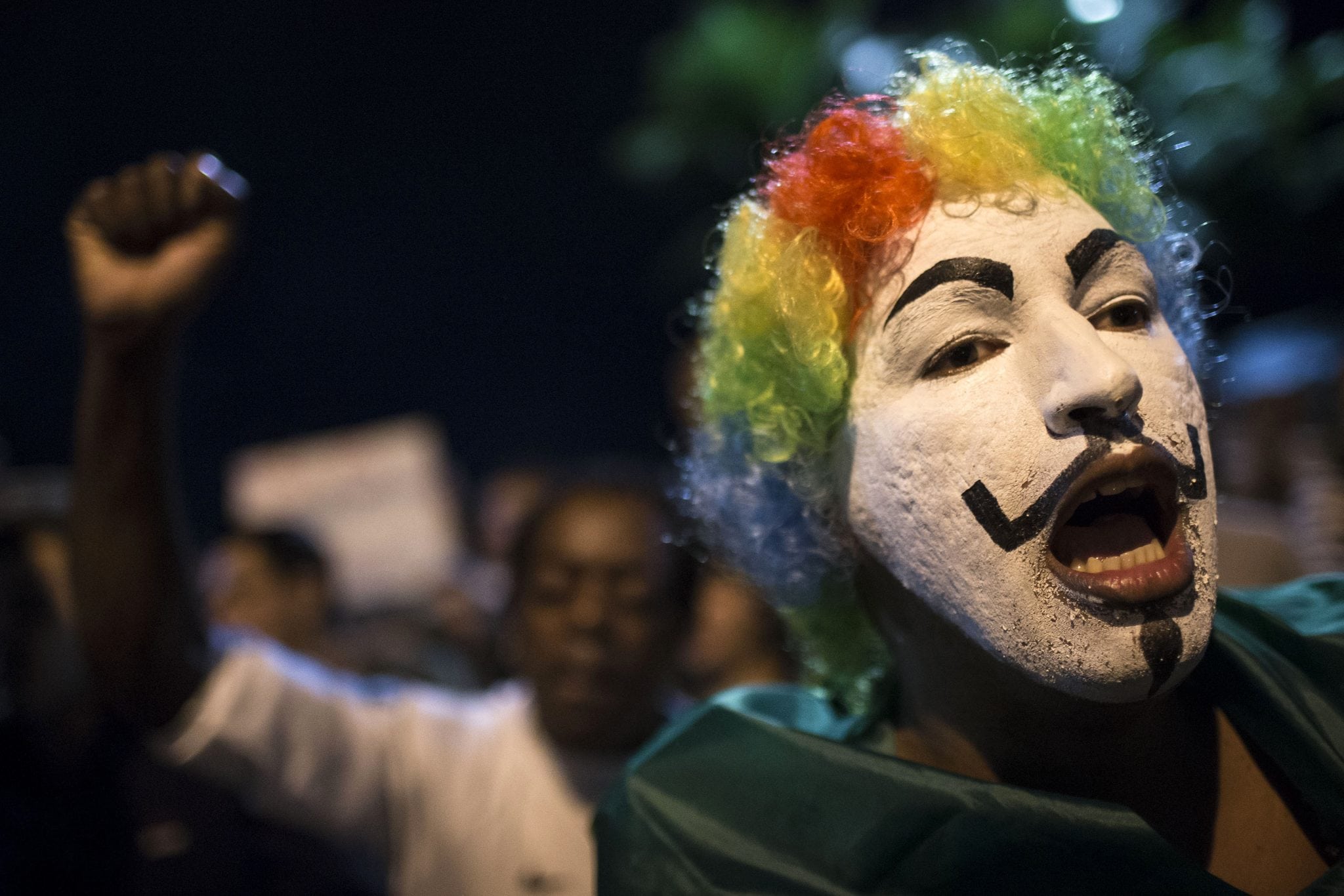Skift Take
It is shortsighted of protesters to see free public transit as better path to economic growth than building infrastructure and attracting visitors, but Brazil must find a way to bolster the local economy while keeping an eye on long-term development.
Under pressure after more than a week of nationwide protests, Brazilian leader Dilma Rousseff said Monday her government will spend $23 billion more on public transportation and announced five core areas that leaders will focus on to speed political reform and improvements to government services.
Rousseff made the announcement after meeting with leaders of a free-transit activist group that launched the first demonstrations more than a week ago and has called for new protests Tuesday. The president also opened a meeting of governors and mayors from 26 capital cities to discuss ways to make deep improvements.
“I mainly want to repeat that my government is listening to democratic voices. We must learn to hear the voices of the street,” Rousseff said at the opening of the meeting with governors and mayors. “We all must, without exception, understand these signals with humility and accuracy.”
While not providing details, Rousseff said she would push debate about holding a plebiscite on political reform and said all levels of government would focus on five priorities: fiscal responsibility and controlling inflation; political reform; health care; public transport; and education.
Protesters have filled cities across this continent-sized country to air a wide spectrum of grievances including poor public services and billions of dollars of spending to prepare for next year’s World Cup soccer tournament and the 2016 Olympics in Brazil.
Mayara Longo Vivian, one of the leaders of the Free Fare Movement who met with Rousseff in Brasilia, said that no concrete measures were given to the group and that their “fight would continue.” The movement has been working since 2006 to eliminate public transport fares.
Vivian referred to the billions of dollars Brazil is spending to host the World Cup, saying, “If they have money to build stadiums, they have money for zero tariffs” on public transportation.
“The people are on the street, the left is on the street, with legitimate agendas,” she said. “Only with concrete measures from the state will this situation be reversed.”
Monday marked the beginning of a more hands-on approach for Rousseff in the face of sharp criticism that she had been too silent during protests last week. Rousseff only delivered a nationwide address Friday, a week after the protest exploded and a day after a million people took to the streets in at times violent protests.
Since then, the demonstrations have shrunk and become less widespread.
Some scattered protests flared Monday, and two women died after being hit by a car as they tried to block a highway in the state of Goias near the nation’s capital. The highway patrol in Goias said the driver of the car fled and is being sought.
Protests in Sao Paulo state also blocked road access to the nation’s largest port in Santos, causing a massive backlog of trucks trying to unload products. In Brasilia, a group of about 300 students protesting against corruption blocked some streets while a protest was expected in Rio de Janeiro later in the evening.
The protests have hit as the nation hosts the Confederations Cup soccer tournament, seen as a warm-up for the World Cup.
Experts said the protesters, though mostly disorganized, were in control thanks to support from the majority of Brazilians as seen in recent polls. That opened a window for concessions on their demands for less corruption and improvements to the nation’s woeful public services.
Complicating matters, though, is Brazil’s worsening economic climate, which Rousseff referred to Monday. The government has been struggling against both a lagging economy and rising inflation, which economists say require contradictory actions to fix. While the nation’s benchmark interest rate could be slashed to stoke economic growth, it could also be raised to keep inflation at bay.
“Brazil will see several waves of protests,” said Guillermo Trejo, a professor at the University of Notre Dame in the U.S. whose research focuses on social protests in Latin America. “This cycle will decline, and it’ll likely return to episodic protests once the media attention of the Confederations Cup goes away.”
But next year could be a bumpy ride, as Rousseff faces re-election, Trejo said. Already, the protests have become the largest of their kind in Brazil in at least two decades.
“Presidential elections are always a huge magnet for protests and hosting a major event like the World Cup will open a window for more,” Trejo said.
Three-quarters of Brazilians support the protests, polls show, while demanding more for the heavy taxes they pay. In fact, Brazilians pay more in taxes as a share of gross domestic product than any nation outside the developing world.
The U.S.-based political risk consulting firm Eurasia Group wrote Monday that the Brazilian leader is “crafting a strategy that tries to generate a sense of progress on protester demands while avoiding increasing spending” as she is “facing a dual challenge — one on the streets and a crisis of confidence in financial markets.”
“Her economic team is well aware that it has little room to engage in more spending to meet protester demands,” the note said.
Associated Press writer Bradley Brooks reported this story in Sao Paulo and Marco Sibaja reported in Brasilia.
Copyright (2013) Associated Press. All rights reserved. This material may not be published, broadcast, rewritten, or redistributed. ![]()
The Daily Newsletter
Our daily coverage of the global travel industry. Written by editors and analysts from across Skift’s brands.
Have a confidential tip for Skift? Get in touch
Tags: brazil, government, protests
Photo credit: A man shouts slogans during a protest outside the home of Sergio Cabral, the governor of Rio de Janeiro state, in Rio de Janeiro, Brazil, Sunday, June 23, 2013. Felipe Dana / AP Photo
